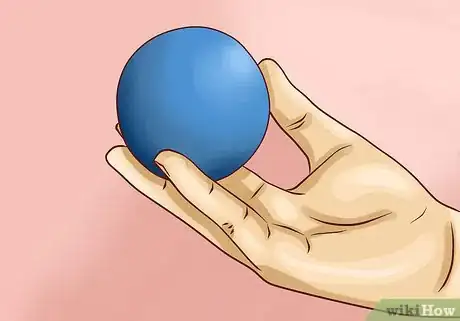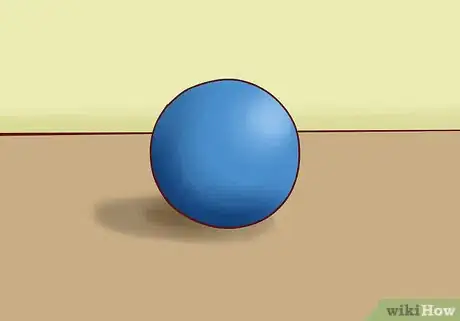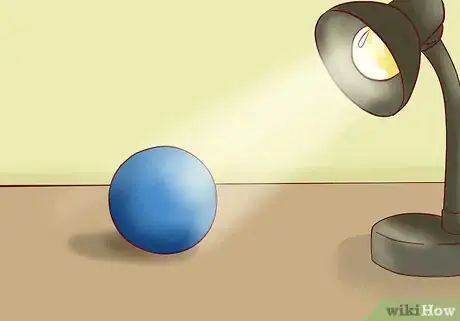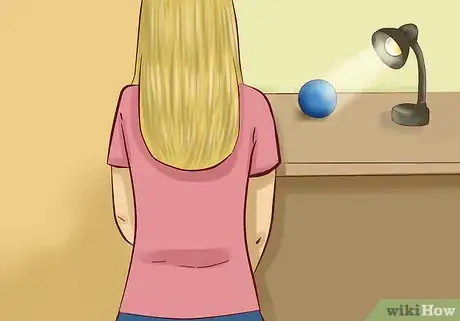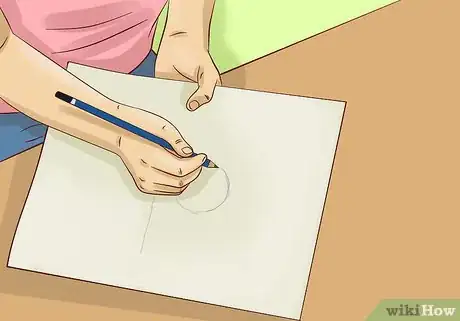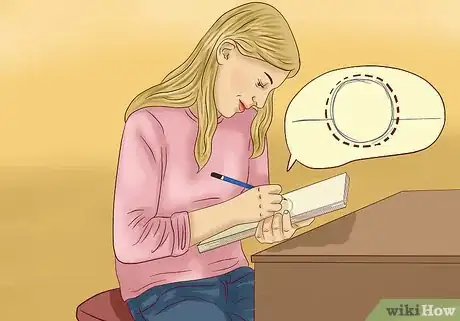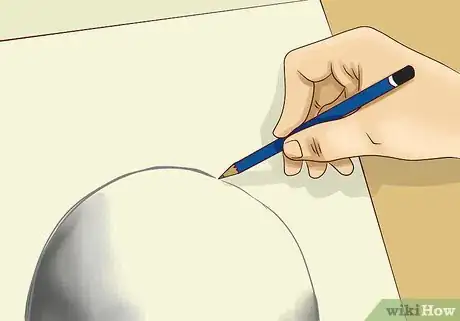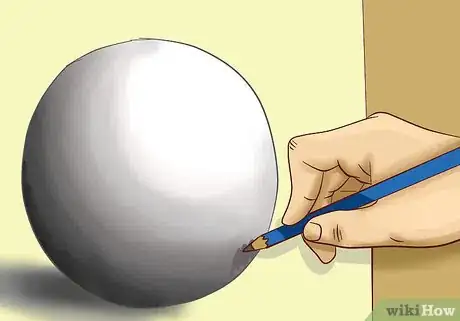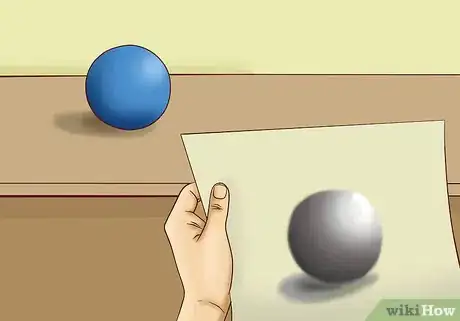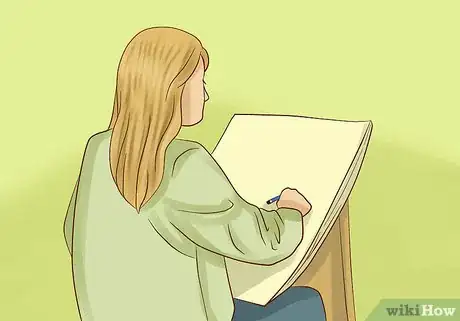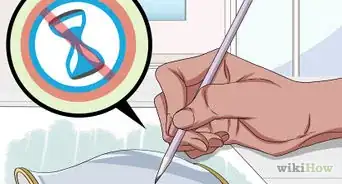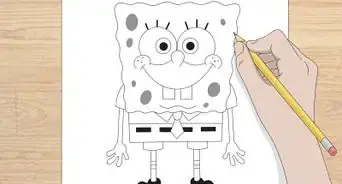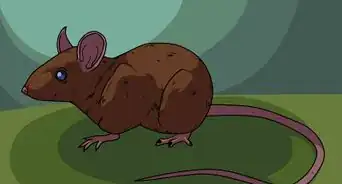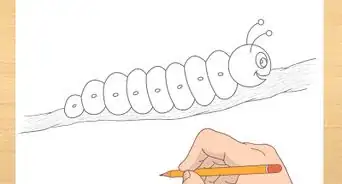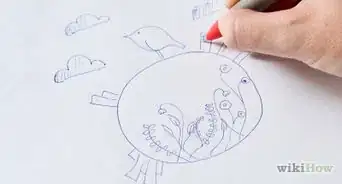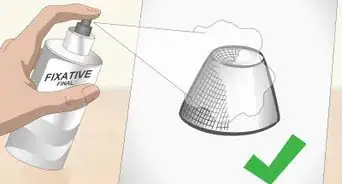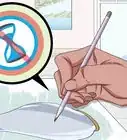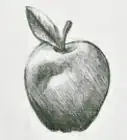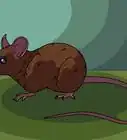X
wikiHow is a “wiki,” similar to Wikipedia, which means that many of our articles are co-written by multiple authors. To create this article, 47 people, some anonymous, worked to edit and improve it over time.
This article has been viewed 273,703 times.
Learn more...
Have you ever thought you can't draw? Well, this article can help you draw and make you a true artist. Everyone can draw if they try hard. Good luck.
Steps
-
1Start by picking an easy object to draw such as a ball, a book, a box, etc. If you are a beginner, then any object without too much detail or has an interesting shape will do. It's very important not to rush yourself into trying something that may be too difficult.
-
2When you have chosen your object, place it on a counter, table, floor, etc. Make sure the location you've chosen doesn't have a complicated background to it.Advertisement
-
3Try to have one source of light (a lamp is recommended). It defines the shadows more.
-
4After choosing the location, look at your object for about 2-7 min. Try to realize the position/shading/texture/patterns and other things that may help you draw it.
-
5When you have realized every single part of the object, start with any place that makes you feel comfortable. Try using the pencil softly so if you mess up it's easier to erase.
-
6When starting, try using shapes that you see in the object, such as circles or rectangles, or draw light lines that divide the object equally. But do not work on any one part of the object until you have the entire object drawn lightly.
-
7Once you have the entire object drawn lightly, start darkening the outlines, but not so dark that it makes it look 2 dimensional.
-
8After that, start adding details. Shading is very important and it must be done properly. Use your pencil lightly when shading and continue overlapping that one part. Don't get impatient and start pressing harder, because after that a dent will appear in the paper and it will be harder to erase.
-
9The process of shading may take a long time, depending on the object, so take a few breaks when you feel it's necessary. You may get some swelling in your arms and hands if you did this process correctly.
-
10When you have finished the shading take a step back and look at your picture, compared to the still object. You may notice some differences so you can go back and fix it. Not everything will be perfect so don't work up a sweat trying to figure it out.
-
11Keep practicing and you will become a better artist!
Advertisement
Community Q&A
-
QuestionHow can I draw a more complex still life with lots of detail and irregular shapes?
 Community AnswerStart by mastering the fundamentals, then draw the same scene with more detail. Add shadows, textures and light to really make your subjects come alive, and choose new objects to practice drawing irregular shapes.
Community AnswerStart by mastering the fundamentals, then draw the same scene with more detail. Add shadows, textures and light to really make your subjects come alive, and choose new objects to practice drawing irregular shapes. -
QuestionHow can I make my still life shadow realistic?
 Book_DragonCommunity AnswerTry looking at a real life model. The lighting will change the shadow drastically, so make sure you have set, indoor lighting that won't change in the time that you draw. Look at the model carefully. Use a smudge pen (which looks like a tightly rolled piece of paper) or your finger to lightly smudge the shading to make it more realistic. Above all else, practice your shading on easy things, such as round objects, until you feel comfortable to move on. It takes time, but in the end, you'll have something you are proud of, and that's worth it.
Book_DragonCommunity AnswerTry looking at a real life model. The lighting will change the shadow drastically, so make sure you have set, indoor lighting that won't change in the time that you draw. Look at the model carefully. Use a smudge pen (which looks like a tightly rolled piece of paper) or your finger to lightly smudge the shading to make it more realistic. Above all else, practice your shading on easy things, such as round objects, until you feel comfortable to move on. It takes time, but in the end, you'll have something you are proud of, and that's worth it. -
QuestionHow do you make a highlight on a drawing?
 Book_DragonCommunity AnswerI usually do this is by smudging very lightly and using a small eraser (such as a moldable eraser, eraser-pen, or tip of a pencil eraser) and erase in a thick line (or circle, depending on the subject of the piece) and smudge around the corners of the highlight. Then you can touch-up erase, and touch-up smudge until you are satisfied with your highlight.
Book_DragonCommunity AnswerI usually do this is by smudging very lightly and using a small eraser (such as a moldable eraser, eraser-pen, or tip of a pencil eraser) and erase in a thick line (or circle, depending on the subject of the piece) and smudge around the corners of the highlight. Then you can touch-up erase, and touch-up smudge until you are satisfied with your highlight.
Advertisement
About This Article
Advertisement
